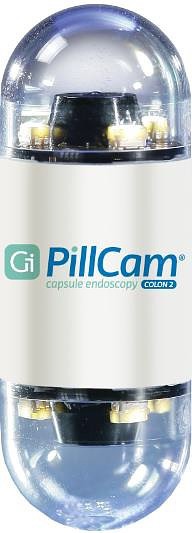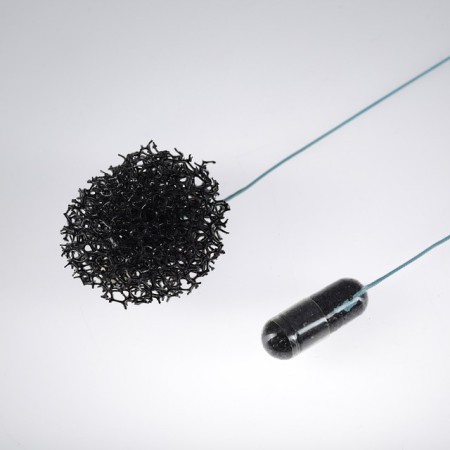West Yorkshire and Harrogate Cancer Alliance works with innovators and clinicians to implement new technology and new ways of working which help to support the transformation and delivery of cancer services, improving clinical outcomes and improving patient experience.
There is a particular focus on improving early diagnosis through risk assessment and new diagnostic techniques.
These include:
Pinpoint
The PinPoint Test is a decision support tool for clinicians, a blood test which can be used for patients on an urgent referral/two week wait pathway to determine the probability of them having cancer.
The test uses machine learning to combine results from multiple blood analytes with basic patient information. This allows clinicians to easily identify those patients who should be further investigated by specialists for cancer diagnosis, red flagging particularly urgent cases and identifying those who can be safely investigated for other possible causes of their symptoms.
Find out about the PinPoint Test in West Yorkshire and Harrogate
Read frequently asked questions (FAQs) about the PinPoint test on the PinPoint Data Science Limited website
Colon Capsule Endoscopy (CCE)
Colon Capsule Endoscopy (CCE) is a new procedure which offers an alternative to colonoscopy for some patients and the Cancer Alliance is supporting its implementation in West Yorkshire and Harrogate.

NHS England is supporting the introduction of colon capsule endoscopy (CCE), innovative imaging technology, in a capsule no bigger than a pill, that can provide a diagnosis within hours.
Traditional endoscopies mean patients need to attend hospital and have a tube inserted, whereas the new technology means that people can go about their day as normal.
The patient swallows a small capsule which takes pictures inside the colon as it passes through and images are sent to a receiver worn on a belt by the patient. These images are then analysed to identify any abnormalities.
The national project focuses on patients with a positive Faecal Immunochemical test – known as FIT – and who are considered at higher risk of developing cancer.
FIT is a test that looks for blood in a sample of your poo. It looks for tiny traces of blood that you might not be able to see and which could be a sign of cancer. Traces of blood in your poo can be caused by other medical conditions and doesn’t necessarily mean you have cancer. But if it is cancer, finding it at an early stage means treatment is more likely to work.
In addition, the Cancer Alliance is funding further work across West Yorkshire and Harrogate where clinicans are interested in exploring the use of capsule endoscopy in what are deemed to be lower risk patients on the basis of the FIT test, who may otherwise need to wait longer for investigations.
A total of 1% of patients in the lower risk categories are known to have cancer and approximately 16% will have polyps and may require further management.
Learn more about colon capsule endoscopy (CCE) on the Cancer Research UK website.
Cytosponge
Cytosponge is a new device which can be used to investigate upper gastro- intestinal symptoms that might be cancer and to identify those most in need of urgent treatment.

During previous research trials, this test found a higher-than-expected number of early adenocarcinomas (a cancerous tumour that can occur in several parts of the body).
It is an inexpensive and simple test that can be conducted in clinic and for some patients, can replace the need for an endoscopy.
The Cytosponge is a capsule that contains a small sponge. The patient swallows the capsule, which has a thread attached. A small sponge is release from the capsule and a trained nurse/clinician pulls on the thread to withdraw the sponge. As the sponge comes back up the gastrointestinal tract, it collects small samples of cells that can be sent to pathology for analysis.
Two hospital Trusts within the West Yorkshire and Harrogate Cancer Alliance area – Calderdale and Huddersfield, and also Harrogate - are involved in the national Cytosponge pilot.
Learn more about the national Cytosponge trial.
Teledermatology
The Cancer Alliance is looking to introduce teledermatology into the skin pathway for suspected skin cancer cases to speed up diagnosis of skin lesions and reduce demand on the two-week wait pathway. Digital technology is used to exchange images and clinical information concerning skin conditions using audio, visual and data communication, supporting more efficient consultation, diagnosis and treatment.
Teledermatology is the use of high-quality medical photography and digital imaging as a tool to diagnose skin conditions, delivered through partnership between GPs and primary care teams, and specialist hospital services.
The use of teledermatology provides flexibility as to when and where images are taken of patients on the two-week referral pathway for suspected skin cancer and enables clinicians to review the images virtually.
This enables a more efficient and effective service for patients – a faster time to diagnosis; a reduced number of hospital outpatient appointments; better quality of care; improved patient experience and outcomes.
GPs and primary care teams work in partnership with hospital services to deliver teledermatology.
The Cancer Alliance is now reviewing the potential and possibilities for the provision of teledermatology through Community Diagnostic Centres – meaning patients need not wait for a face to face appointment but can be referred directly to a diagnostic hub in their local area.
Non-Site-Specific Pathway (NSS)
Patients who present with non-specific symptoms (NSS) or combinations of these which could indicate several different cancers often experience delays in diagnosis, higher rates of late presentation and/or emergency presentation and poorer patient outcomes.
The development of new NSS pathways and ensuring optimal use of those that are already established remains a key priority. All Cancer Alliances are working towards achieving 100% population coverage for patients with non-specific symptoms of cancer by March 2024.
NSS services are in place across all Trusts within West Yorkshire and Harrogate.
Clinical Decision Support Tool
The Cancer Alliance is looking to implement a Clinical Decision Support Tool (CDST) which brings together the most up-to-date information and evidence to support healthcare professionals in identifying, diagnosing and treating patients at risk of, and affected by, cancer.
It will help patients and clinicians to work together to decide on the best course of action, ensuring the preferences and values of the patient are identified and are part of the decision-making process.
The Innovation Programme Manager is Helen Ryan.
For more information, email:

